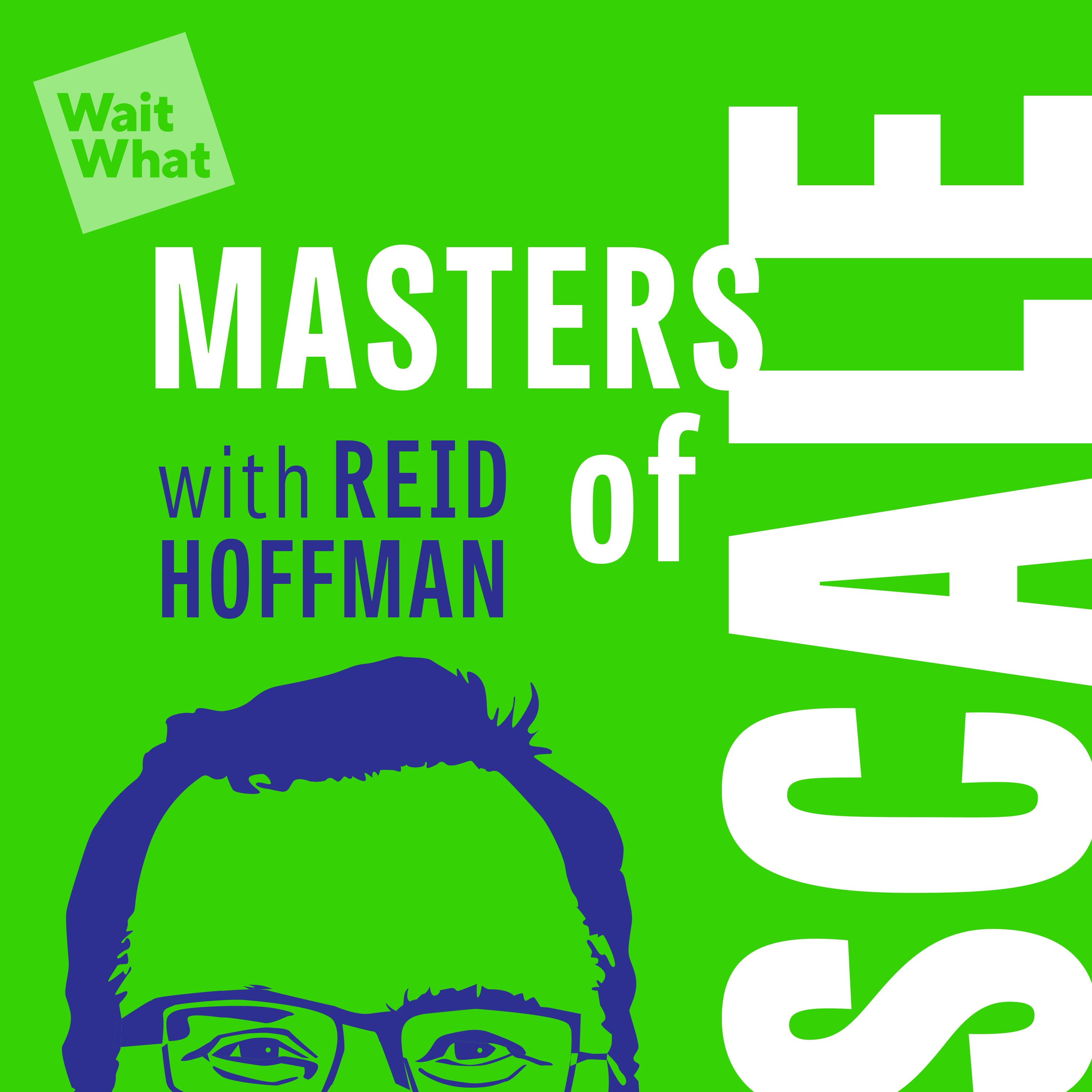
July 4, 2024 • 34min
Ron Howard: Evolve your vision (Encore)
Masters of Scale

Key Takeaways
- Your unique selling point is your vision - You need to realize and refine that vision amid constant change
- Personal taste + self-belief is the formula that can make a vision into a reality
- Say no to requests from powerful partners if they take you away from your vision
- The technology, platform, and medium are secondary to your vision - Focus on the core of what you're trying to achieve
- There is no innovation without risk and experimentation - Be willing to try new things, even if they fail
- Empower others to realize their own visions as you scale
- Walk the tightrope of being true to your vision while delivering something customers will love
- Harness changes in technology and audience tastes to bring your vision to life in new ways
Introduction
This episode features Ron Howard, the legendary director, producer, actor and co-founder of Imagine Entertainment. Ron shares how he has balanced staying true to his creative vision while embracing change throughout his career in Hollywood. The conversation explores how Ron has navigated technological shifts, changing audience tastes, and industry disruptions to consistently bring his vision for storytelling to life across multiple decades.
Topics Discussed
Ron's Early Filmmaking Vision (01:30)
Ron Howard describes his early passion for filmmaking, even as a child actor in Hollywood. He shares an anecdote about making a documentary for a high school history project:
- Interviewed 7 people about living through the Great Depression
- Used a film camera and separate tape recorder for narration
- Had to manually sync the projector and audio during screenings
This project was part of Ron's long-term vision to become a filmmaker. As he says: "Even though I was a child of Hollywood, I was always interested in independent film production. I had this fire in the belly and a real passion for the medium."
Transitioning from Actor to Director (08:53)
Despite his acting success, Ron felt behind on his filmmaking goals by age 22. He explains:
- Wanted to direct his first feature as a teen
- Unusual for sitcom actors to transition to directing at the time
- Felt he would have to "kick down doors" to convince people
Ron got creative to make his directorial debut, leveraging an acting opportunity with Roger Corman to get a chance to direct. As Ron recalls: "When I went in for the final meeting, I had to actually tell my agent not to come up with me because I knew he was going to barter for money. I didn't care about the money. I cared about the director's chair."
Founding Imagine Entertainment (15:42)
Ron partnered with producer Brian Grazer to found Imagine Entertainment in 1985 after the success of their film Splash. Ron explains their vision:
- Pool resources and leverage to work out of one office
- Focus on telling stories that would reach an audience
- Guided by their personal taste and belief they could succeed
As Ron says: "There was no sort of secret formula to Imagine other than our personal taste and this sort of belief that we could, between us, tell stories that would reach an audience."
Navigating Industry Changes (17:35)
Ron describes how Imagine's business model was disrupted by rising actor salaries after Bruce Willis was paid $6 million for Die Hard. This forced them to adapt their approach. Additionally, their distribution partner wanted creative control and for Imagine to expand into radio, which didn't align with their vision.
Ron explains their response: "Well, that's not what either of us wanted. We were not distribution. We were the storytellers. And that's the way we wanted it."
Embracing New Technologies (22:57)
Ron shares how he learned to embrace new filmmaking technologies, even when he didn't fully understand them:
- Worked with visual effects experts on Cocoon
- Collaborated on early CGI morphing effects for Willow
- Focused on how tech could serve the story and characters
As Ron says: "People think of me as somebody who's very tech savvy. Fact is not so much, but a fascination with it and a love of collaborating and understanding what this is making possible."
Refocusing on Vision (26:33)
In 1992, Ron and Brian took Imagine private again to refocus on their creative vision:
- Company was struggling with quarterly earnings expectations
- Bet on the upside potential of future movies
- Led to hits like Apollo 13, Nutty Professor, Liar Liar
Ron reflects: "Fortunately, we hit an incredible hot streak...and it turned out to be a good move for us."
Experimenting with New Mediums (27:27)
Ron describes Imagine's early foray into online video with Pop.com:
- Partnership with Steven Spielberg and Jeffrey Katzenberg
- Platform for streaming short-form entertainment
- Struggled with technology limitations and lack of revenue
Though Pop.com failed, it led to new ideas. As Ron explains: "Even though Pop.com shuttered, I thought, there's an aesthetic here...that would really work for a half hour comedy." This eventually inspired Arrested Development.
Scaling the Vision (30:17)
Ron discusses the challenges of scaling Imagine Entertainment:
- Building a team to carry projects forward
- Letting go of direct control on every project
- Empowering others to realize their own visions
As Ron says: "In order to scale, we now need them to do projects that our fingerprints are on, but we're not necessarily controlling, you know, and that's not something that we're necessarily comfortable with."
Democratizing Filmmaking (31:26)
Ron describes Imagine's Impact program to support emerging filmmakers:
- Boot camp for screenwriting and TV production
- Platform for pitching to industry professionals
- Increased diversity of voices and ideas
Ron reflects: "The idea was to not only find gems and help get them made, but also to help launch people. A byproduct of it was tremendous diversity."
Adapting to Changing Audience Tastes (33:03)
Ron shares an anecdote about his recent film 13 Lives, which features extensive subtitled dialogue:
- Initially worried about audience reaction to subtitles
- Film tested higher than any of his previous movies
- Realized audiences have become more open to global stories
As Ron says: "I realized that Squid Game, Narcos, these shows are big hits, and they've taught people the cultural value of actually allowing yourself to hear people act in their own voice and in their own language. I was kind of blown away by that."
Leveraging New Technologies (34:26)
Ron discusses how new filmmaking technologies have expanded creative possibilities:
- Easier to iterate and try different options
- Allows for more experimentation in post-production
- Helps actors create memorable moments
Ron reflects: "It's made it easier to not only get what a director has in his or her mind onto the screen, but also for actors to create these really memorable moments. The toolbox is just expanding."
Conclusion
Throughout his career, Ron Howard has successfully navigated massive changes in the entertainment industry while staying true to his core vision as a storyteller. By embracing new technologies, adapting to shifting audience tastes, and empowering other creators, Ron has been able to consistently bring compelling human stories to life across multiple decades and mediums. His journey demonstrates how visionary leaders can harness change to refine and scale their unique creative visions, rather than being derailed by disruption. The key is to remain focused on your core mission and values, while being flexible in how you bring that vision to life as the world changes around you.




